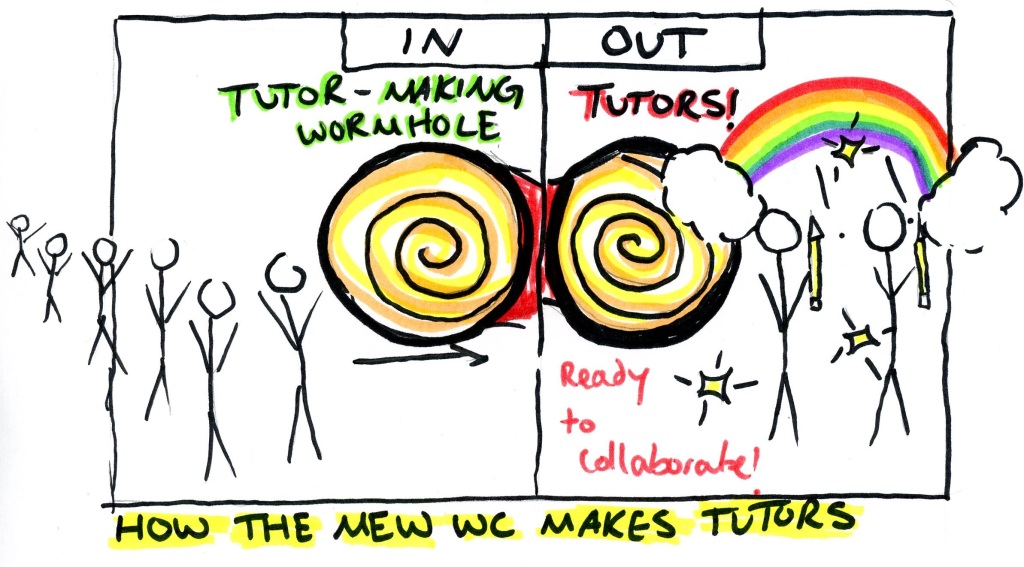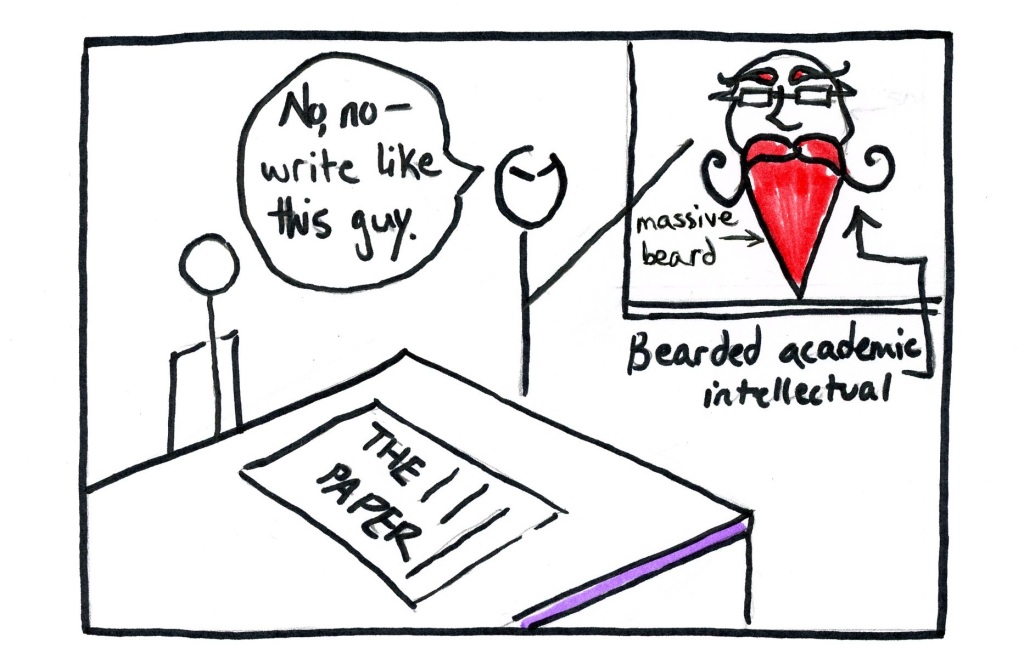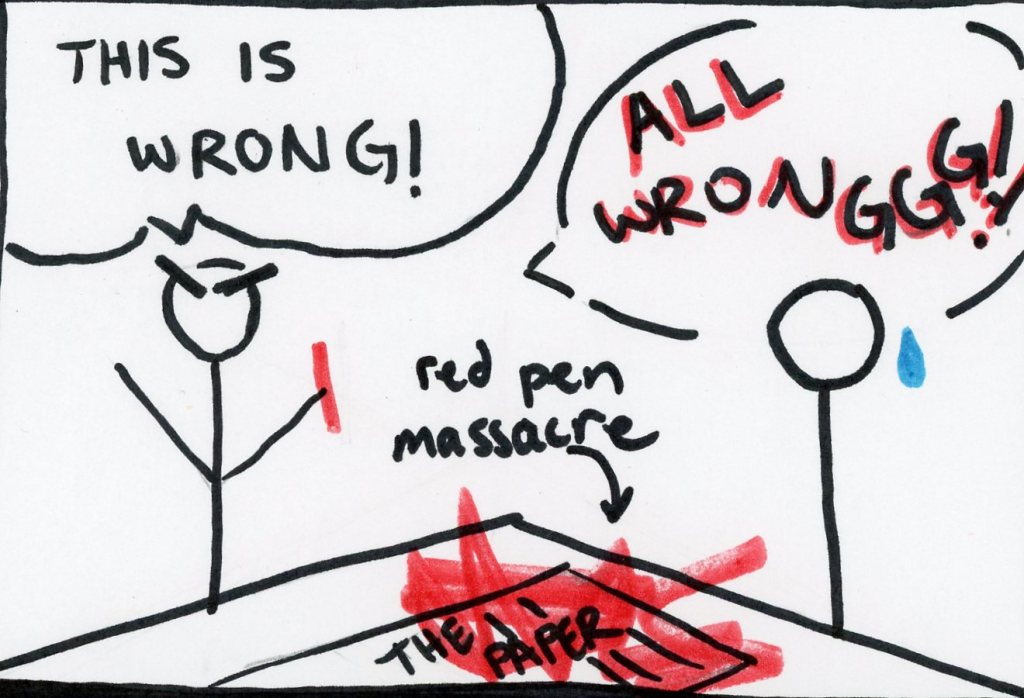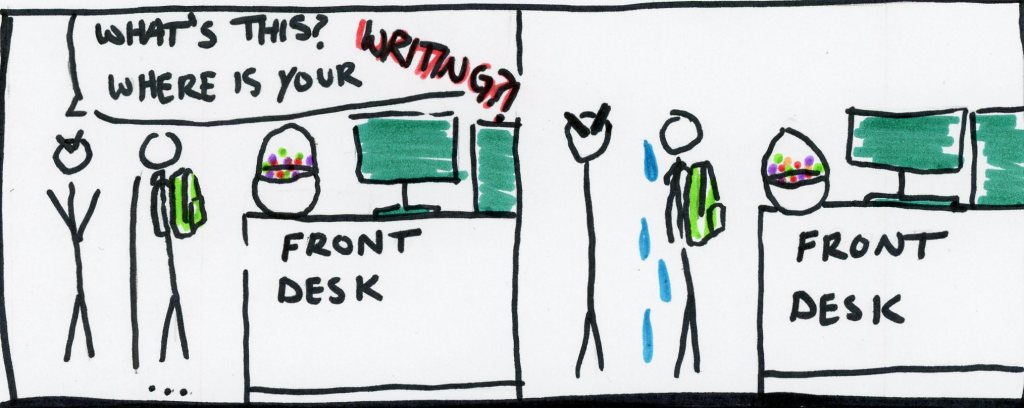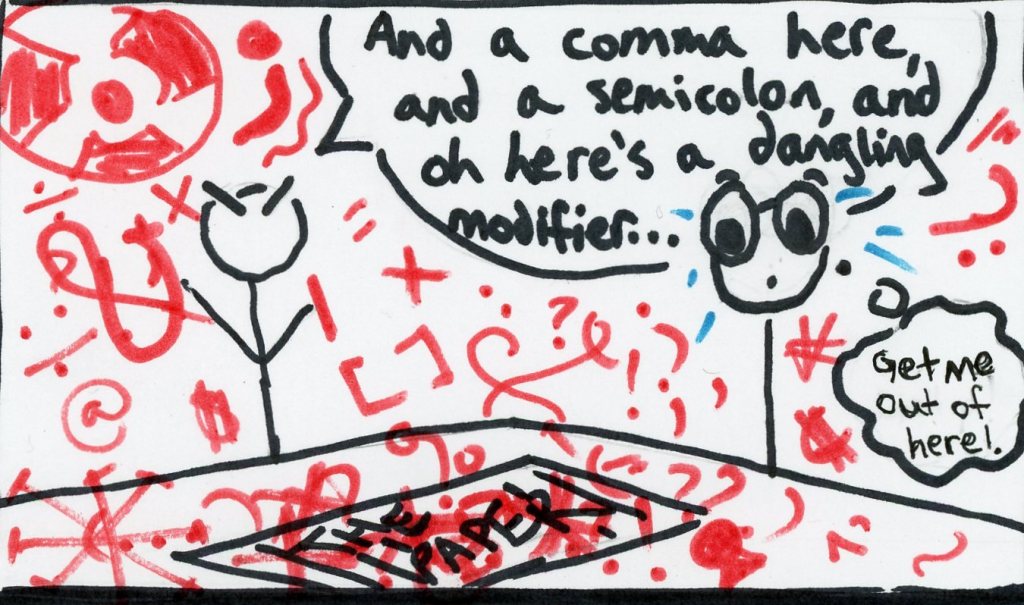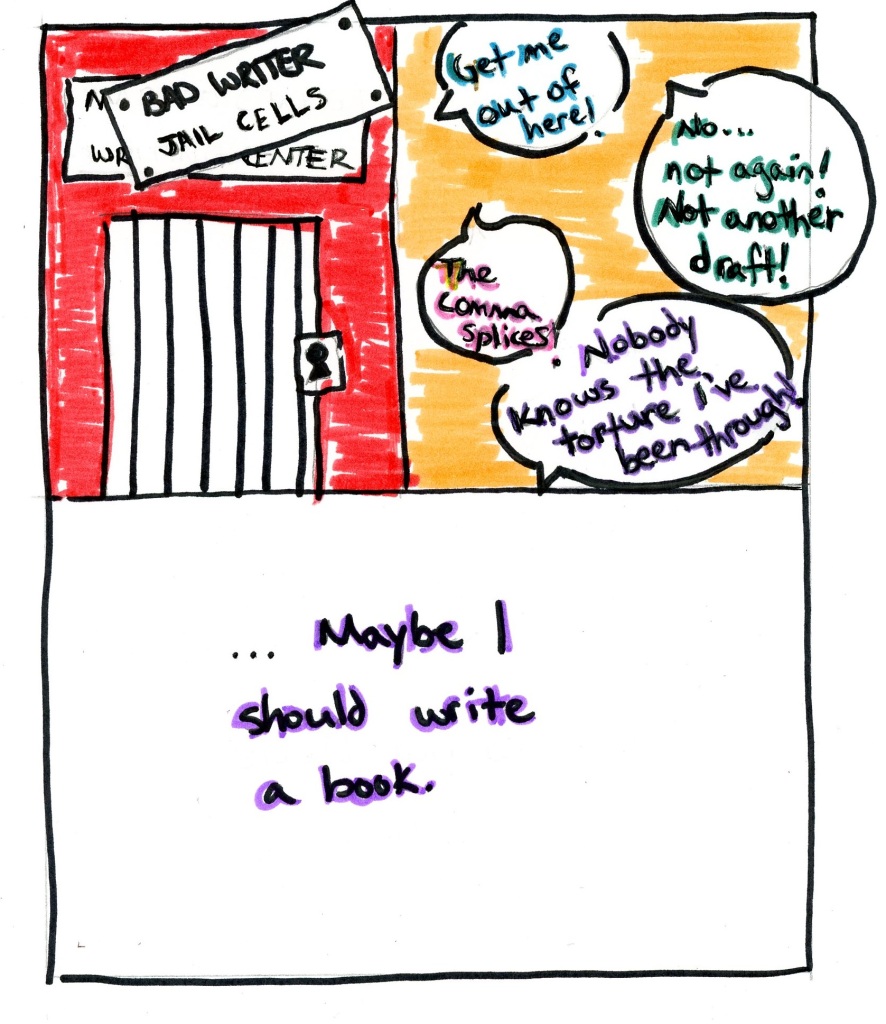The writing center isn’t just a place for essays and what’s typically considered academic. It’s also a place for creative writing. We can work with you on any kind of writing you want to bring in, at any point of the process. We can brainstorm with you; we can help you figure out how you want to revise, and everything else in between.
Sometimes rumors and myths about the writing center can scare people away. Maybe bringing up some of these to debunk in the course of this series can help clear some misconceptions about what kind of place the writing center is.
Myth: No one knows how tutors get to work at the writing center.
Fact: Every tutor that works at the writing center takes a course through the English Department—Seminar in Collaborative Theory and Writing Practice. The course teaches them about different tutoring styles and includes a practicum, where they observe tutors working at the writing center and gradually begin to practice with other students and even in simulations. After taking the class, there is a chance to apply for a position in the writing center. This means you get to work with a trained individual deemed qualified by the admins at the writing center.
Myth: When you work with tutors, they tell you what to do with your writing and how to write the way everyone should write.
Fact: We don’t believe there’s a specific way to write. When you work with a tutor, you’re working with a student just like you who has developed skills in working with writers with no power structure barrier between you. They aim to help you develop skills as a writer to help you develop more confidence and independence when you approach your own writing.
Myth: We ‘critique’ your work. We tell you what’s bad and how to fix it.
Fact 1: We don’t believe in bad writing. We look at writing as being in a process—it might start out not looking at all like what you want it to be, but as you look at it again and again and decide if and how you want to change parts of it.
You should see some of our first drafts. If we papered a haunted house with them, Stephen King’s rejection letters would pale by comparison.
Fact2 : We don’t want to tell you what to do. We can make suggestions and feedback that you might consider, but that you don’t have to take if you don’t think it fits. Different tutors may have different styles to go about this, but this is still a general focus.
Instead, we try to help you find the direction you want to take with it by asking you questions about different parts of your writing in discussing it. This might open your eyes to different aspects of your piece you weren’t thinking about before and help you figure out what you want to do with it.
Myth: You have to bring in writing.
Fact: You don’t. We look at writing as a process and part of the process is generating ideas and content to write about. We also do brainstorming appointments just to talk with you about your ideas.
Myth: We only care about grammar because that’s all writing is.
Fact: We see grammar as only one part of a larger process. We are not that old school librarian stereotype with the glasses, the ruler and the iron fist about how you should write. Writing can be equated to a conversation—the way you might structure how you say might be confusing to the person you’re speaking to if you don’t clarify it. But it’s what you’re saying and how you organize the main ideas you’re talking about that matters too. So we try to look at those things with you as well.
Myth: Only bad writers go there.
Fact: THERE ARE NO BAD WRITERS. There are, however, writers who feel like they don’t like where they’re at.
All kinds of writers can work here and want to. We even have professors come in for feedback on what they’re working on. It even seems like people who would be perceived as more advanced in their writing stage stop by even more frequently and with less anxiety about appointments because they’re looking for insights and feedback produced from the discussions in session.
Which brings us to: Why would writers WANT to come to the writing center?
Coming up next: Anxieties and Advantages!


